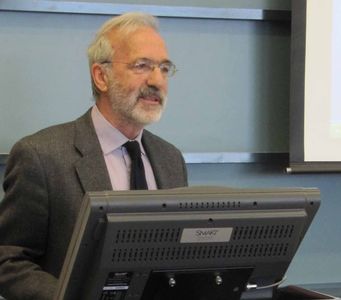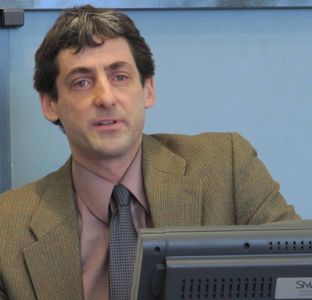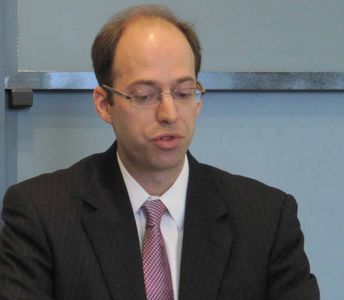Experts Discuss Energy Policy at 5th Sawyer Seminar

On Friday, January 28 2011, The Frederick S. Pardee Center for the Study of the Longer-Range Future and the BU Department of Geography and Environment convened for the first of the Spring 2011 John Sawyer Seminars on Energy and Society. The session, entitled Energy Policy, featured Paul Sabin and Robert Lifset and was moderated by Michael Caramanis.

Paul Sabin, Assistant Professor of Environmental History at Yale University, began the conversation by focusing on the role of crisis in bringing change to the American energy system between 1965 and 1980. He noted that the years following the 1969 Santa Barbara oil spill and the 1973 oil embargo saw significant change in United States oil policy, such as the reduction of tax subsidies for oil production, the pursuit of fuel economy and efficiency requirements, as well as the tightening of environmental regulations and further restrictions on offshore oil drilling. However, looking back at the 1970s more than thirty years later, he concluded that these policy changes appear to have only modestly altered American patterns of energy use.

Robert Lifset is the Donald Keith Jones Assistant Professor of Honors at Oklahoma University and the founding web and list editor of H-Energy. His presentation focused on the fate of energy conservation policy first advanced in the 1970’s, and particularly EPCA’s mandatory fuel economy standards for new cars and small trucks after the 1977 model year. This study, he concluded, reveals that the choices we make regarding energy production technologies as well as efforts to address consumption, are highly politicized, and thus that energy policy demands a political roadmap.
Following the presentations the audience engaged in a lively discussion with the panelists. Some of the issues discussed included the need to differentiate between energy policy and oil policy, the role of the pricing system as incentive for innovations in energy policy, and the significance of climate change as an important driver for thinking energy transitions. Professor Najam, director of the Pardee Center, concluded the Q&A session by highlighting that as move to a world where nations such as China and India have developed “energy muscle,” the U.S. might be more of a policy taker than a policy maker. He added that discourse of “foreign oil dependence” shifts the energy responsibility from domestic consumption to global, and hence uncontrollable geopolitics.
The interdisciplinary seminar series will continue throughout the spring semester and will bring together leadings scholars to discuss various aspects of how energy transitions are themselves socially constituted and how they have, and are likely to, impact society. The second seminar, entitled The Role of Energy in Avoiding Collapse, will be held on Friday, February 25.